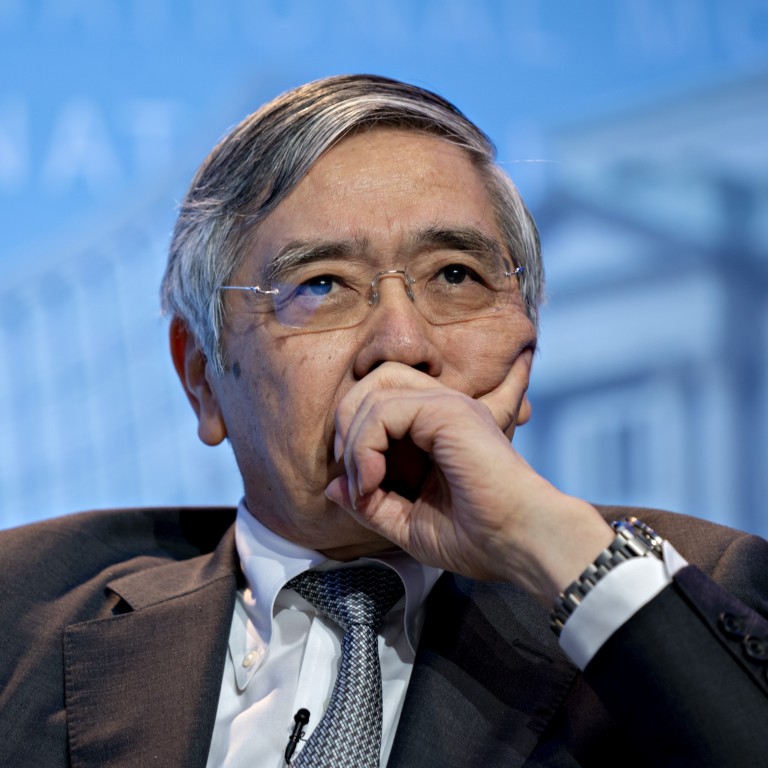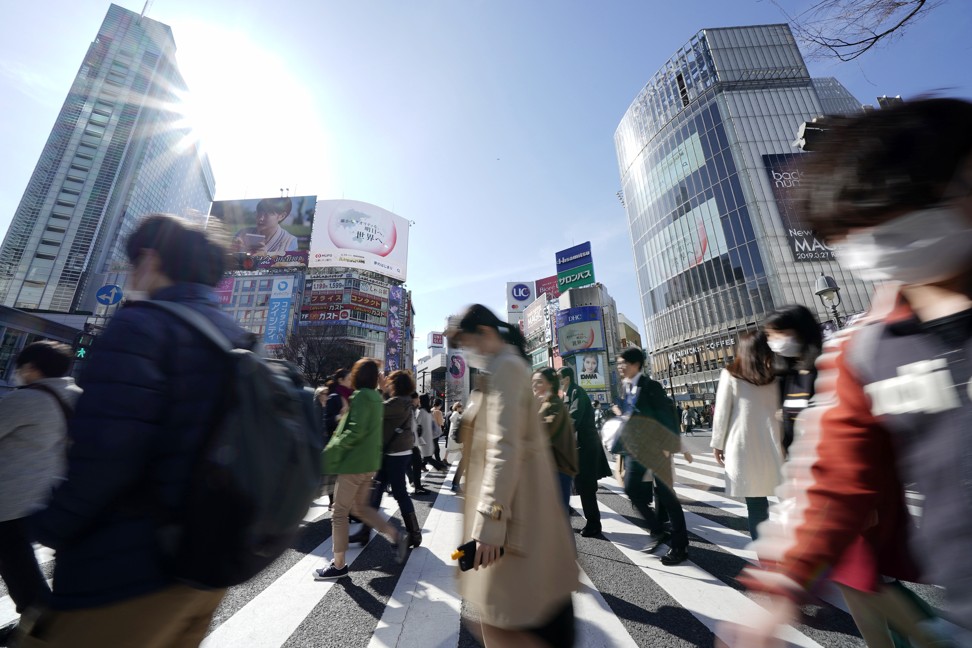
As the Federal Reserve and ECB follow in the Bank of Japan’s footsteps, they skirt some inconvenient truths
- Japan’s central bank pioneered the policy of zero interest rates and easy money, now seen as a panacea for the world’s economic ills. However, the side effects of this model are not fully known, nor how long it can continue without posing system risks
Stock, bond, real-estate investors and businesspeople everywhere were eager to see whether Kuroda would endorse the new monetary orthodoxy that has allowed them to make a financial killing since the United States Federal Reserve, the European Central Bank and others followed in the BOJ’s footsteps.
This must have been music to the ears of US President Donald Trump, who neither knows nor cares much about economics so long as the US economy “goes up like a rocket” on his watch. Kuroda’s words were no doubt soothing too, to those ordinary mortals who, to use his own words, “do not always pay close attention to monetary policy”.
Many central banks, he observed “face a common challenge of how to raise inflation”, the assumption being that, without the expectation of inflation, and far more so if there is disinflation or deflation present, consumers will have little incentive to consume and investors to invest because it will be cheaper to do so tomorrow.
But what if interest rates are already at or close to zero? No problem, suggested Kuroda, because central banks can always push them into negative territory, and rates are truly zero or below only when inflation is zero. Even a zero nominal rate is positive in real terms if inflation exists.
What matters is where nominal rates stand in relation not only to inflation but also to the “natural” rate of interest. While “natural rate” has various definitions, it is perhaps best defined as the interest rate consistent with maintaining economic growth at its trend rate and which is consistent with stable inflation.
For various reasons, the natural rate of interest has been declining in Japan, Europe and other advanced economies. Thus, central bank-engineered interest rates need to fall to keep pace.

The trouble is that Kuroda appeared to skirt a few inconvenient truths. “We have not yet fully understood the effects and side effects of unconventional monetary policy,” he acknowledged. “But there is no need to be too pessimistic about them,” he added, which seemed remarkably inadequate given that his comments were followed closely by stock and bond markets not because they have suddenly become students of monetary policy but because they have so much skin in the game.
Why financial markets now resemble a Mad Hatter’s tea party
Kuroda also acknowledged the danger of ultra-low interest rates triggering, on the one hand, “excessive risk taking” by financial institutions and a consequent increase in leveraging, and on the other hand, the threat of them becoming reluctant to lend because of capital constraints. He even hinted at the possibility of system risks arising.
It fuels suspicion that Kuroda and Powell are feeling their way in the dark out of the corner they have been pushed into by Trump and Abe
To further obfuscate, he declared the BOJ “will persistently continue with powerful monetary easing to maintain the momentum toward achieving 2 per cent inflation”, only to add that “it is not easy to continue with such powerful measures for a long time”.
Kuroda’s comments reminded me of former BOJ governor Masaaki Shirakawa, who warned in 2010 that policymakers should beware of “short-term” stimulative policy measures. That Pandora’s Box is now open, who will dare to close it?
Anthony Rowley is a veteran journalist specialising in Asian economic and financial affairs

